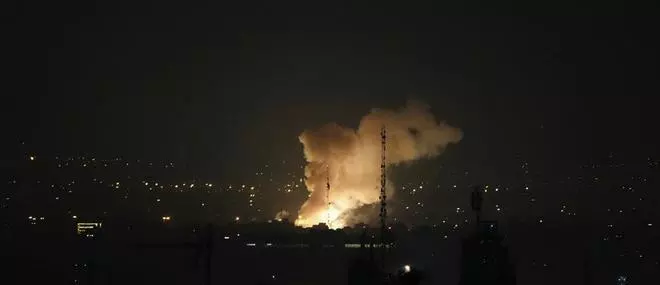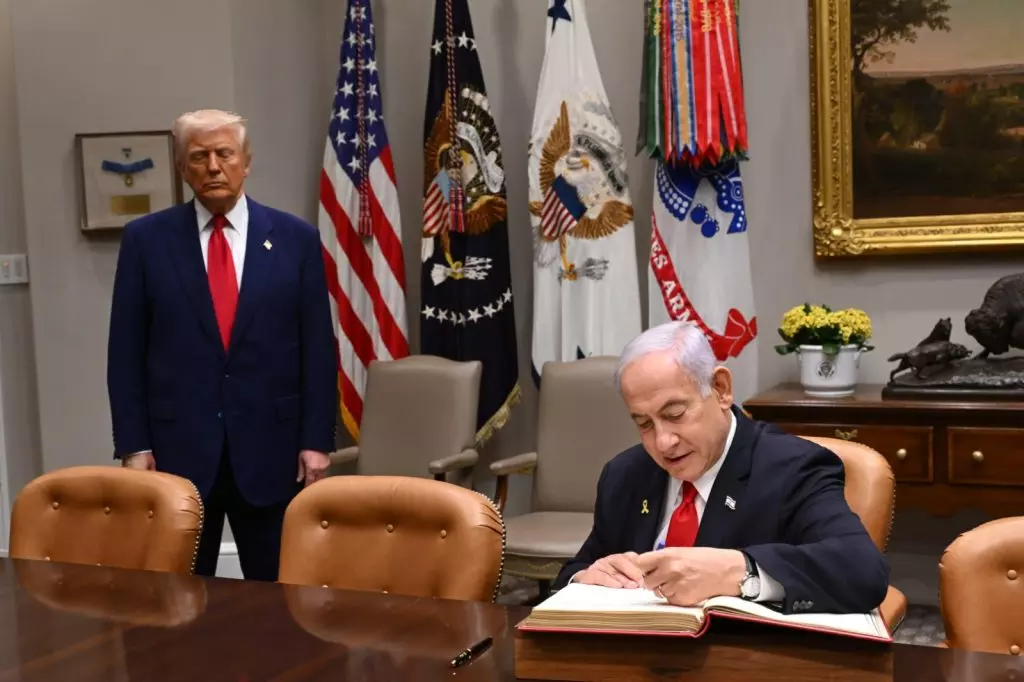
Israel at it again
text_fieldsFrom the dawn of yesterday, Friday, Israel launched a large-scale airstrike against Iran, marking a sharp escalation in tensions across West Asia. The assault, codenamed Operation Rising Lion, reportedly targeted Iranian military and nuclear installations as well as high-ranking officials. According to Iranian sources, the attack claimed the lives of key figures, including Iran's top military commander, Hossein Salami, former Atomic Energy Organization chief and MP Fereydoon Abbasi, and nuclear scientist Mohammad Mehdi Tehranchi. The building they lived in, believed to house several nuclear scientists, was reportedly heavily damaged. This marked a brutal and deliberate offensive by Israel, which deployed around 200 warplanes, according to the Israeli Defense Forces. The strike clearly intended to hit Iran's leadership, not just its infrastructure. Israel considers Iran its principal regional adversary. It views Iran’s nuclear capabilities and its continued investment in anti-Israeli militancy, both financially and in terms of manpower, as existential threats. Israel’s recent push to normalize relations with Arab countries, particularly those sympathetic to the Palestinian cause, is largely aimed at diplomatically isolating Iran.
Under the 2015 nuclear deal brokered by the UN and signed by the US and EU countries, Iran had agreed to limit its nuclear enrichment programs in return for relief from international sanctions. But in 2018, the Trump administration abrogated the agreement, prompting Iran to resume its nuclear program. Since then, Israel has been after Iran, including the reported assassination of Iranian scientists, diplomats and officials, sometimes even going after them in foreign countries like Iraq. Following Friday’s strike, Israeli Prime Minister Benjamin Netanyahu declared that this would not be a one-day operation but can last several days, and even longer if necessary. He, along with Israel's military leadership, vowed not to allow Iran to remain a regional threat, suggesting the operation was the result of long-term planning against Iran's nuclear enrichment and nuclear weapons production.
Attention must now turn to the United States. Washington has long stood firmly behind Israel. Vetoing anti-Israel resolutions at the UN Security Council, converting loans into grants and providing financial assistance year after year, supplying military aid, and offering protection through its naval and missile presence in the region were all part of the US routine. However, following the latest airstrikes, both President Donald Trump and Secretary of State Marco Rubio stated that the US had no part in the operation. They warned, however, that the US would respond if its interests were targeted in the aftermath. Despite these denials, it is difficult to believe the US was completely unaware of the planned assault. Notably, the US administration's instruction to its diplomatic staff and citizens to limit travel to the area around its embassies and, in the case of Israel, to Tel Aviv, and the evacuation of officials a day before the attack are signs that they received a signal. Israeli media also reported that the US was informed immediately after the operation began.
The critical question is not merely whether the US knew, but whether it is endorsing Israel’s actions. If yes, Washington’s claim of neutrality rings hollow. And if the US believed the strike was wrong, then its failure to prevent Israel, especially while nuclear talks with Iran are reportedly underway, is telling. Trump himself remarked that Israeli actions could derail ongoing diplomatic efforts. The US’s Middle East envoy was due to meet Iranian officials on Sunday. So why did Washington not intervene to prevent a strike that clearly undermines those negotiations? If Israel is defying it, shouldn't there be at least some response? Iran’s Supreme Leader Ali Khamenei has warned of a “bitter and painful” fate. If Iran retaliates, Israel could find itself embroiled in a new front of conflict, alongside the ongoing war in Gaza.








